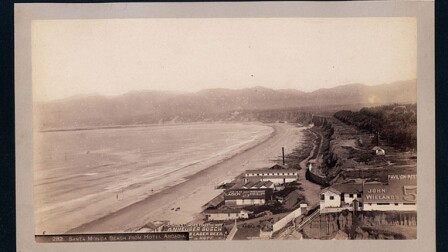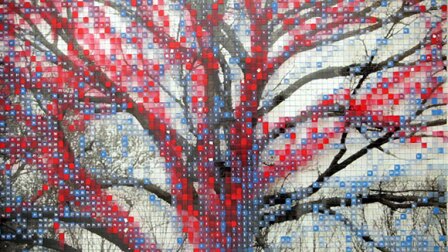Monomania L.A.: Jim Kepner and the Sanctuary of Sci-Fi
This project was made possible with support from Cal Humanities, a non-profit partner of the National Endowment for the Humanities. Visit http://www.calhum.org.
Through a series of short films and articles, Monomania L.A. profiles five L.A. as Subject collectors who have turned a monomaniacal obsession with a particular aspect of Southern California history into a public resource. These collectors have documented disparate subjects -- the California orange, sci-fi reading circles, political graphics, a Mexican rancho, African American photographers -- but their stories share one thing in common: a passion for history that has enriched our understanding of Southern California's past.
What did science fiction and LGBTQ activism have in common in the 1950s? Quite a lot, it turns out, as ONE National Gay and Lesbian Archives director Joseph Hawkins discovered when he dove into the personal papers of Jim Kepner. As a passionate science fiction fan and a pioneering activist for LGBTQ (Lesbian, Gay, Bisexual, Transgender, Queer) rights, Kepner (1923-97) belonged to both camps, and his collection of zines, artwork, and other sci-fi materials reveals hidden harmonies between the two movements.
Both envisioned alternate worlds free from the constraints of the time. Sci-fi authors dreamed of a future where technological innovation overcame the limitations of physics, like the gravity that then still bound humanity to the Earth. Likewise, members of the "homophile" movement (as supporters of LGBTQ rights then styled themselves) imagined a future where social progress trumped traditional ideas about gender identity and sexual orientation.
Further Reading from Artbound:
Eaton Science Fiction Conference Makes Riverside the Center of the Known Universe
The 2013 Eaton Science Fiction Conference examines science fiction in multiple media.
Exploring the ONE National Gay & Lesbian Archives
David Evans Frantz, curator of exhibitions and projects at the ONE National Gay & Lesbian Archives, discusses the value of a queer archive for contemporary artists and community.
























